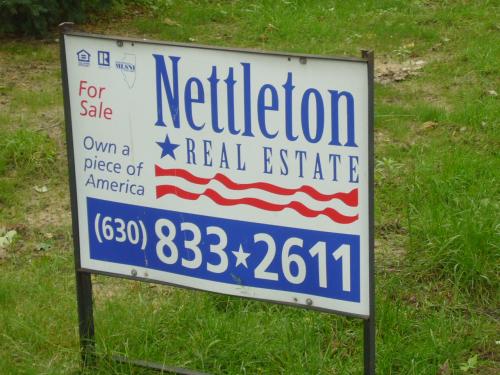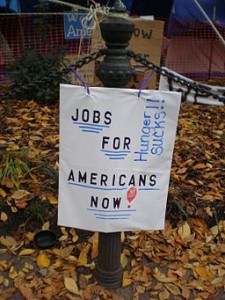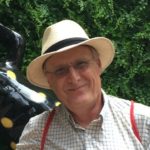
Successful land speculation (also known as “real estate investment”) is really a matter of taking for yourself the gains that belong to the community. George Menninger is one of the many who have done it, but he’s exceptional in his understanding of what he did, as well as his sympathy for his victims. He’ll explain how the bad public policy he exploited not only made him rich, but led to continued poverty, unemployment, and even the recent economic meltdown.
Menninger is a Henry George School volunteer instructor, and this stand-alone session also serves as the introduction to his modern version of Progress & Poverty. After his talk, you may, if you wish, sign up for the five-session course.
This session introduces Progress & Poverty, including an overview of what we cover in the course. Even if you don’t plan to take the full course, you can expect this introductory session to help you gain a new and useful perspective on today’s problems of wealth concentration, poverty, and lack of opportunity.
America in the 1870s faced increasing poverty, rising unemployment, rule by an elite and their corporations– many of the same problems we’re experiencing today. Henry George described the cause of these problems and proposed a remedy which is even more applicable today than it was in his time. His book Progress & Poverty, perhaps the best-selling nonfiction book of the 19th century, presented his analysis and solution.
In this “classic” version of the course, students are encouraged to read the original 1879 text, and/or modern summaries and supplements, and to evaluate what George says against their own experience and understanding. You’ll gain a new understanding of how the economy works, which public policies promote liberty and prosperity, and which don’t.
Class meets every Tuesday, beginning 6:15PM on January 19, ending March 22. More information about the course is here and here. Pre-registration is helpful but not required.
Between 1948 and 1973, Americans’ real wages rose almost as fast as their productivity. After 1973, productivity grew 147% but wages rose only 19%. This raises two questions:
(1) If workers getting less, who is getting more?
(2) Is there a way to restore the balance?
To solve the problem of poverty, and the many other problems that follow from it, ordinary workers need higher wages. George Menninger describes how to raise wages without interfering in the free market and without taking anyone’s earnings.
George Menninger is an instructor at the Henry George School of Chicago, and attendees at this free program will have the opportunity to sign up for his Progress & Poverty course.
You can sign up for this free event thru Eventbrite, or RSVP directly by email.

International trade has been a continuing issue throughout our history. The issues Henry George confronted in the late 19th century were similar to those raised in the recent election. His careful analysis showed that both sides were wrong, and proposed a trade policy to raise real wages of working Americans.
Despite huge social, technological, and demographic changes since George’s time, his analysis requires only very minor updates, and concludes that today, again, both sides are wrong. Take this opportunity to understand and evaluate for yourself a proposal to achieve widespread prosperity, here and now, thru True Free Trade.
This free presentation by Henry George School instructor Chuck Metalitz is adapted from our “Protection or Free Trade” course.
Between 1948 and 1973, Americans’ real wages rose almost as fast as their productivity. After 1973, productivity grew 147% but wages rose only 19%. This raises two questions:
(1) If workers getting less, who is getting more?
(2) Is there a way to restore the balance?
To solve the problem of poverty, and the many other problems that follow from it, ordinary workers need higher wages. George Menninger describes how to raise wages without interfering in the free market and without taking anyone’s earnings.
George Menninger is an instructor at the Henry George School of Chicago, and attendees at this free program will have the opportunity to sign up for his Progress & Poverty course.
No reservation is required, but you can let us know by email that you’re coming.
Between 1948 and 1973, Americans’ real wages rose almost as fast as their productivity. After 1973, productivity grew 147% but wages rose only 19%. This raises two questions:
(1) If workers getting less, who is getting more?
(2) Is there a way to restore the balance?
To solve the problem of poverty, and the many other problems that follow from it, ordinary workers need higher wages. George Menninger describes how to raise wages without interfering in the free market and without taking anyone’s earnings.
George Menninger is an instructor at the Henry George School of Chicago, and attendees at this free program will have the opportunity to sign up for his Progress & Poverty course.
No reservation is required, but you can let us know by email that you’re coming.

This presentation has been cancelled. We will let you know when it’s been rescheduled. There will be no presentation February 21, 2019.
The Battle of Lincoln Park tells the story of how people with clashing visions and values fought to determine the path gentrification would take before anyone was using that word. Calling on the power of private funds, public policy, moral appeals, and both nonviolent and violent protest, residents of Old Town and Lincoln Park struggled over the meaning of “desirable” homes, “neighborhood character”, and what kind of city Chicago should be. The outcomes set the tone for profound changes to the city that are still unfolding today.
Acclaimed author Daniel Kay Hertz has written extensively on subjects relating to gentrification, housing, urban demographics, and transportation. This is his first book.
Registration is required for this free event. Building security will print a badge for you to go upstairs. If you plan to come, or are just considering the possibility, please let us know by email events@hgchicago.org or by phoning us at 312 362-9302.

This presentation has been rescheduled and will now take place Thursday, March 7, 2019, at 6:15 pm.
The Battle of Lincoln Park tells the story of how people with clashing visions and values fought to determine the path gentrification would take before anyone was using that word. Calling on the power of private funds, public policy, moral appeals, and both nonviolent and violent protest, residents of Old Town and Lincoln Park struggled over the meaning of “desirable” homes, “neighborhood character”, and what kind of city Chicago should be. The outcomes set the tone for profound changes to the city that are still unfolding today.
Acclaimed author Daniel Kay Hertz has written extensively on subjects relating to gentrification, housing, urban demographics, and transportation. This is his first book.
Registration is required for this free event. Building security will print a badge for you to go upstairs. If you plan to come, or are just considering the possibility, please let us know by email events@hgchicago.org or by phoning us at 312 362-9302.
Please register for this Zoom Webinar by clicking the green registration button.
David Wilson, author of the forthcoming book Towns Along the Q, will discuss the consequences of certain disastrous and discriminatory housing policies that he has become familiar with in the course of researching the topic, development of Chicago’s western suburbs along the Chicago Burlington & Quincy Railway.

